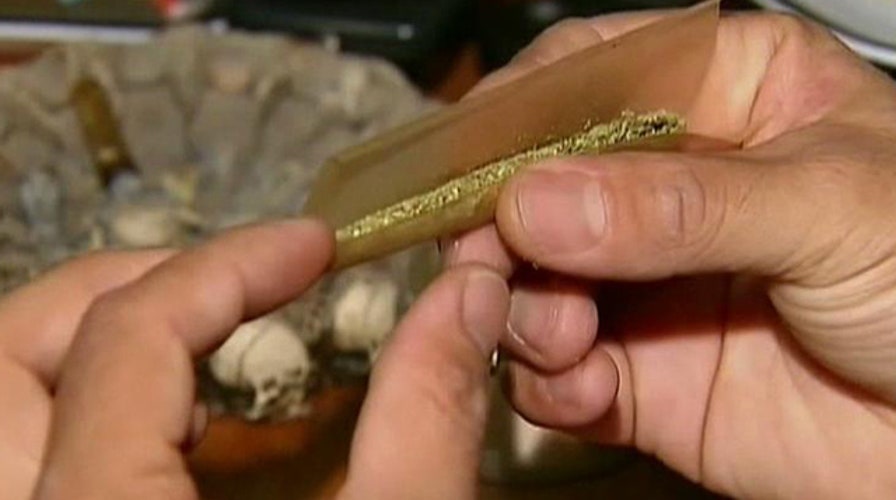President Obama is taking a hit from anti-drug groups for downplaying the effects of marijuana use, as some point out his recent comments appear to clash with statements by his own health and law enforcement agencies.
The president, in a recent interview with The New Yorker, likened pot to cigarettes and alcohol.
"As has been well documented, I smoked pot as a kid, and I view it as a bad habit and a vice, not very different from the cigarettes that I smoked as a young person up through a big chunk of my adult life. I don't think it is more dangerous than alcohol," Obama said.
He added that smoking marijuana is "not something I encourage" and is "a bad idea, a waste of time, not very healthy."
But anti-drug and public health organizations have since seized on the remarks, claiming the president is giving a muddy picture of the medical downsides of marijuana.
"His laissez-faire attitude about legalization has drug policy and prevention experts scratching their heads in confusion as to why the President will not give clear guidance on this important issue," The Drug-Free America Foundation said on its website.
"President Obama is surrounded by a myriad of experts who have voiced serious concerns about the harms of marijuana and rejected legalization, so either he is seriously ill-informed about the issue or is completely ignoring warnings from his highly-esteemed advisers."
Obama's comments were made to the backdrop of Colorado and Washington state legalizing and regulating marijuana. His remarks could be taken as another signal that his administration will not interfere with their experiment -- though recreational marijuana use remains illegal under federal law.
The president echoed the argument that pro-legalization advocates often make, stressing the cost to society of locking up minor drug offenders.
"Middle-class kids don't get locked up for smoking pot, and poor kids do," Obama said. "And African-American kids and Latino kids are more likely to be poor and less likely to have the resources and the support to avoid unduly harsh penalties."
But his administration, and those of his predecessors, repeatedly have documented and publicized health risks from the drug.
Obama's own Office of National Drug Control Policy still states on its website that the administration "steadfastly opposes legalization of marijuana and other drugs."
The office lists a range of negative health and mental consequences from the drug, including schizophrenia, lower IQ ("as much as an 8 point drop"), and higher risk of heart attack.
The National Institute on Drug Abuse says the drug is addictive, with nearly 4.2 million people having a pot abuse or addiction problem in 2011.
The agency says the drug is linked to "school failure" and high doses "can cause psychosis or panic when you're high."
The American Society of Addiction Medicine released a statement on Tuesday noting that the drug impairs memory, motor function and respiratory health when smoked -- and can be addictive.
"Addiction is a chronic brain disease that can affect people at any age. In fact, the younger one initiates alcohol or drug use, the greater the likelihood that he or she has addictive disease," ASAM President Stuart Gitlow said.
A recurring rebuttal to the president's comments is that weed today is stronger than it was when, say, Obama smoked it.
The White House drug office says studies show the potency has "almost tripled over the past 20 years."
The president attracted a rebuke along those lines from former Democratic Rep. Patrick Kennedy, who told MSNBC that Obama's director in charge of drug abuse would tell him "that, in fact, today's modern, genetically modified marijuana -- so it's much higher THC levels -- far surpass the marijuana that the president acknowledges smoking when he was a young person."
He said the president's remarks were "wrong."
Despite the discord, Colorado is charging ahead with launching the nation's first legal pot trade and other states are considering loosening their own rules. The New Hampshire House recently approved a legalization bill.
Advocates point to the legal and personal costs to individuals of continuing to prosecute a full-throated drug war. FBI stats show hundreds of thousands of people are arrested every year for marijuana.
Obama, in his interview, suggested there is hypocrisy in the system, since those writing drug laws "have probably done the same thing" as those being locked up.





